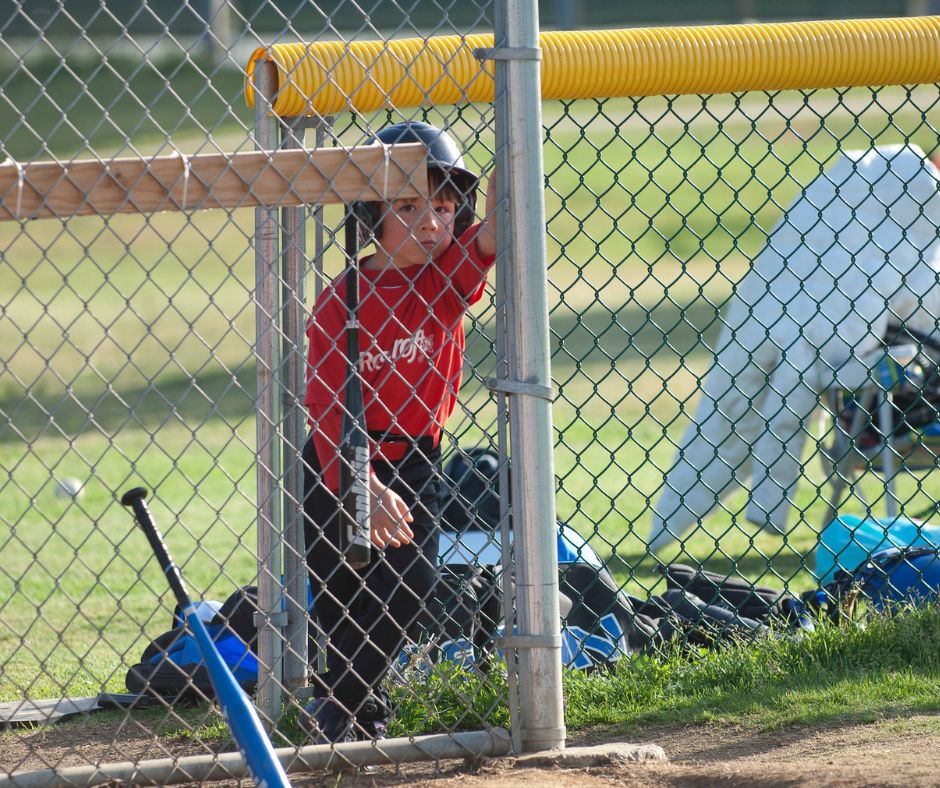
Your Parenting Style May Be Damaging Your Athlete’s Mindset
By Dr. Sam Maniar
Your Parenting Style May Be Damaging Your Athlete’s Mindset. The other day, I was watching my 9-year-old son play a soccer video game on my iPad. He seemed to be scoring at will, and I asked him if there was a way to make it more difficult. He said, “Yeah. I’m on the beginner level.” I then asked him what kept him from trying a harder level, and he said, “Nah. You can try that if you want.”
Given that I’m a sports psychologist AND one who has read Dr. Carol Dweck’s research on mindset, the interaction I had with my son was troubling. I wanted him to challenge himself so that he could learn and grow. It made me wonder what I had been doing to foster his fixed mindset.
Mindfulness For The Youth Sports Parent & Easing Anxiety Before Games
According to Dweck, some people get caught up in trying to prove their ability. As a result, they become overly concerned with mistakes and failures. This is referred to as having a fixed mindset. Others are able to focus on learning and developing. As a result, competition isn’t nearly as stressful for them. These people are said to have a growth mindset.
The good news is that an athlete’s mindset can be changed, and they are fostered by parents, coaches, and other influential people. In fact, I believe Dweck’s book Mindset: The New Psychology of Success should be required reading for all parents, coaches, and educators. For example, Dweck found that children as young as four years old who believe attributes are fixed (in other words, they cannot be changed) will shy away from challenges and opt for easier, safer tasks — even if it means doing the same task over and over. Obviously, these children will never discover their potential.
So what can we do? As adults and youth sports parents who are molding our youth, we need to be aware of the messages we send children. Do we harp on our players when they make a mistake? Or worse yet, do we bench them? Does the outcome of the game impact our mood and praise? Do we demand perfection? Do we set goals related to scoring points? All of these things are shaping the fixed mindset.
I’m not saying to be soft. On the contrary, we need to be demanding … but with the right things. Demand 100% when it comes to things such as effort, attitude, commitment, and preparation. Treat mistakes as learning opportunities. As we all know, sometimes, the only way to improve is to make mistakes, learn, and then adjust. Isn’t that what life is about anyway?
Need help fostering a growth mindset? Here are six tips for youth sports parents and coaches:
- Help your athletes focus on the process — not on the outcome. When you praise or correct, be sure to address things such as effort, tactics, choices, intent, and strategy.
- Are you criticizing or correcting? Make sure your constructive feedback is helping the player learn how to fix it the next time. Demeaning a player for a mistake will only further solidify the fixed mindset.
- When setting goals, steer toward process-oriented goals, such as acquiring knowledge or improving technique. Focus on things that the player has complete control over.
- To help your child focus on the growth-oriented approach, come up with a reminder or cue. My son loves it when I write one letter on his left hand and one on his right. Depending on what we are working on, it might be “A” for attitude, “E” for Effort, or “L” for Learning. When I need to remind him during a game, all I need to do is point to my hand or hold it up in the air. It’s kind of like our little secret with each other.
- Help your child self-assess and improve. At the end of a practice or game, ask them to rate their effort (or attitude, commitment, etc.) on a scale of 1-10. Refrain from offering your input right away. The goal is to help them self-monitor. The number they give you is not important; their rationale is. Ask what made her choose that number. What did they do well? What could they have done better? What is their plan for the next time?
- Alternatively, you can ask your players what they learned after each practice. This approach is simple yet effective. Also, be sure to remind them of their learning before the next practice (or better yet, ask them if they remember what it was).
Good luck fostering the growth mindset. Please tweet me at (@sam_maniar), and let me know how it goes!
Sam Maniar, Ph.D., is a Sports Psychologist and Founder of the Center for Peak Performance, LLC, where he works with athletes, teams, and businesses. He holds a doctorate degree in Counseling Psychology with a specialization in Sport Psychology. His favorite two “athletes” are his ten-year-old son and seven-year-old daughter. To learn more about Dr. Maniar, visit his website at www.CenterForPeakPerformance.com or follow him on Twitter at @sam_maniar
More great articles like this one:
Five Parent Types That Are Killing Youth Sports
Understanding the Ripple Effect: How Parents’ Behaviors Impact the Team












